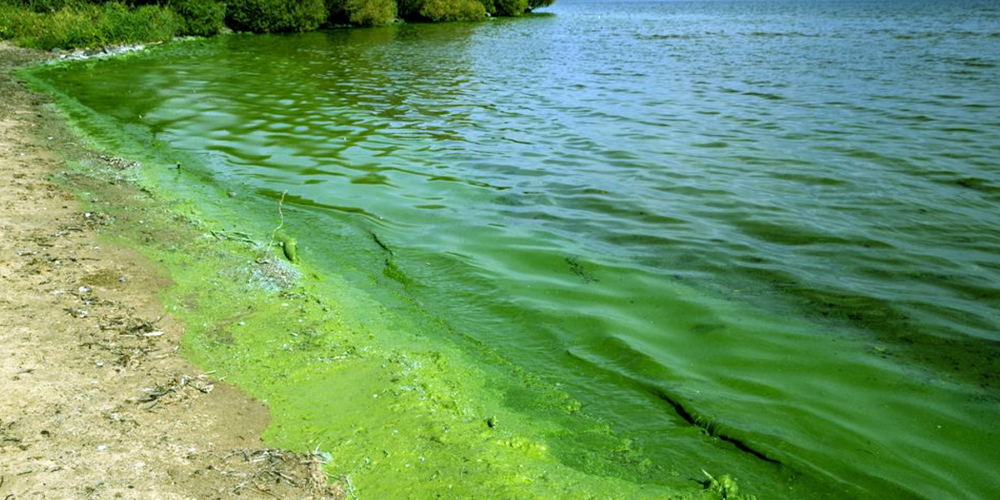Public outrage at the environmental catastrophe in Lough Neagh has led to calls for the lough to be brought back into public ownership.
Lough Neagh is the largest lake in Ireland. It has a surface area of 392 square kilometres and supplies 40 per cent of the North’s drinking water. It is not exactly a puddle in a field. How could somebody possibly own this virtual inland sea? From whom did they buy it? Surely Lough Neagh is a natural resource for the people of Ireland.
The answer to that question is, Nobody bought it. King James of England gave it to Sir Arthur Chichester during the Plantation of Ulster in 1603. The ownership of the lough bed, and shooting and fishing rights, passed on to his relation the Earl of Shaftesbury in the nineteenth century and has continued to this day.
Today it is in the hands of the 12th Earl of Shaftesbury, Nicholas Edmund Anthony Ashley-Cooper.
• He is also known as Nick Ashley-Cooper or Nick Shaftesbury.
• He is also known as Baron Ashley of Wimborne St Giles.
• He is also known as Baron Cooper of Pawlett.
• He is also the Deputy Lieutenant of Dorset.
• His main family residence is in Wimborne St Giles.
If Ashley-Cooper claims he owns Lough Neagh, with that comes responsibilities. What does he do with it? Given the levels of pollution, he isn’t looking after it very well.
Like all absentee landlords, he extracts as much wealth as possible from it and has little concern for those who do the work, or the effect this has on the environment. It is purely an income stream.
He has licensed five sand-extraction firms to take 1½ million tonnes of sand a year from the lough. Large boats are used to pump the sand from the lake bed before transporting it ashore. It is then sold on, mostly to construction firms.
The practice of sand extraction has been going on for sixty years and is allowed to continue because of unique British colonial laws, even though the lough is protected under the global Convention on Wetlands and is designated a special protection area under the EU Birds Directive.
A notice to halt was issued by the Department of the Environment in 2015 when it became clear that there was no planning permission for the extraction of sand. Once again British colonial law came to Ashley-Cooper’s rescue and allowed sand to be taken from the lough on the earl’s behalf until an appeal hearing. Sand continued to be sucked from the lake bed, and licences were finally granted in October 2020 to five extraction firms.
Ulster Wildlife and the Royal Society for the Protection of Birds are calling on Ashley-Cooper and sand traders to be made to carry out a full environmental impact assessment to monitor the damage caused. Ashley-Cooper insists that sand extraction causes minimal damage, and that many people (mostly himself) depend on it for their livelihood. For more than sixty years these firms have paid a royalty to the Earl of Shaftesbury for every tonne of sand extracted.
The Earl continues to receive sand levy payments on the 1½ million tonnes extracted annually. His cut or levy is not publicly known, but a tonne of sand costs an average of £40. This makes £60 million the retail value of the sand gouged from the lough bed annually.
The lough is also used as a sewage outfall. 200,000 tonnes of sewage are discharged each year in the catchment for Lough Neagh. This system is only permissible through British Crown immunity—another gift of colonial rule.
Sovereign immunity, or crown immunity, is a legal doctrine whereby a sovereign or state [England in this case] cannot commit a legal wrong and is immune from civil suit or criminal prosecution.
Along with Ashley-Cooper’s many titles can surely now be added Baron of Sand Extraction and Earl of Pollution.
Britain has multiple parasitic aristocrats who own vast swathes of Ireland. Ashley-Cooper has apparently offered to sell the lough and bring it back into public ownership. This parasite needs to wake up from the seventeenth century. There must be no question of paying this colonial leech a single penny for the return of our national resource. The Earl of Pollution must pay for the damage to the lake on his and his family’s watch, and the Baron of Sand Extraction must repay to the people of Ireland the wealth sucked from the bed of the lough.






